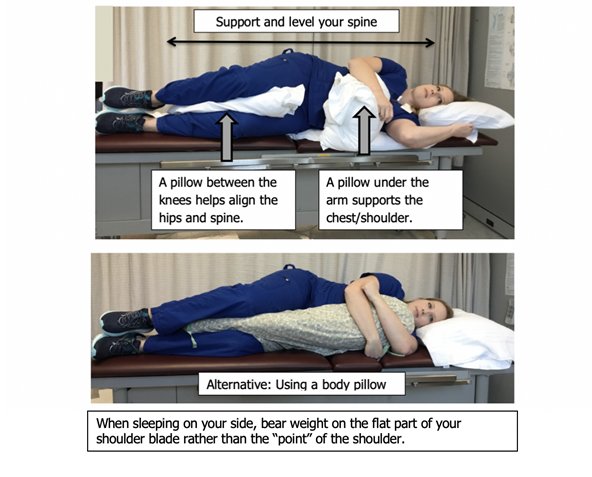When you bend your wrists during sleep, it could be your body’s way of relieving pressure or tension. The position your wrists take while resting can affect your overall comfort and well-being throughout the night. Understanding why you bend your wrists when you sleep can help you make adjustments to promote better sleep quality and comfort. Let’s delve deeper into the reasons behind this common nighttime habit.
Why Do I Bend My Wrists When I Sleep
Have you ever woken up in the morning only to find that your wrists are bent in an odd position? It’s a common occurrence for many people, but have you ever wondered why it happens? In this blog post, we will explore the reasons behind why we tend to bend our wrists when we sleep and what it could indicate about our sleeping habits.
The Science Behind Wrist Bending During Sleep
When we sleep, our bodies go through various stages of relaxation and movement. As we drift into deeper stages of sleep, our muscles may become more relaxed, leading to unintentional movements or positions. One common phenomenon is bending the wrists, which can happen for a few reasons.
1. Comfort
One reason you may find yourself bending your wrists during sleep is for comfort. Some people find that sleeping with their wrists bent allows them to feel more relaxed and cozy. It’s like finding the perfect position to snuggle up and drift off to dreamland.
2. Habitual Movement
Another reason for bending your wrists during sleep could be a habitual movement. Just as some people toss and turn in their sleep, others may naturally curl their wrists without even realizing it. This repetitive movement can become a sleep habit over time.
3. Nerve Compression
In some cases, bending your wrists during sleep could be due to nerve compression. When you bend your wrists, especially for prolonged periods, it can put pressure on the nerves running through your wrist, leading to discomfort or even numbness. This is more common in individuals who already have conditions like carpal tunnel syndrome.
Effects of Bending Your Wrists During Sleep
While bending your wrists during sleep may seem harmless, it can have some effects on your overall comfort and health.
1. Wrist Pain
Constantly bending your wrists during sleep can lead to wrist pain, especially if the position puts strain on your muscles and joints. Over time, this can result in discomfort during the day and may impact your hand movements.
2. Numbness and Tingling
If nerve compression is a factor in why you bend your wrists during sleep, you may experience numbness and tingling in your hands and fingers. This sensation, known as paresthesia, can be bothersome and may affect your sleep quality.
3. Reduced Blood Flow
Bending your wrists can also restrict blood flow to your hands, which may cause them to feel cold or numb when you wake up. Proper blood circulation is important for overall health, so it’s essential to address any issues that may affect it.
How to Prevent Bending Your Wrists During Sleep
If you find that bending your wrists during sleep is causing discomfort or affecting your sleep quality, there are ways to address this habit.
1. Ergonomic Sleep Position
Try adjusting your sleeping position to keep your wrists in a neutral, straight position. Using a supportive pillow or mattress can help maintain proper alignment and reduce the likelihood of bending your wrists.
2. Wrist Splints
For individuals who have recurring wrist pain or nerve issues, wearing a wrist splint during sleep can provide support and prevent excessive bending. Consult with a healthcare provider to determine if this option is suitable for you.
3. Relaxation Techniques
Practicing relaxation techniques before bed, such as stretching or gentle yoga, can help relax your muscles and reduce the urge to bend your wrists during sleep. Creating a calming bedtime routine can promote better sleep hygiene overall.
In conclusion, bending your wrists during sleep can be a common but potentially problematic habit. Understanding the reasons behind this behavior and its potential effects can help you take steps to improve your sleep quality and overall comfort. By identifying the factors contributing to wrist bending and implementing strategies to address them, you can enjoy restful nights without waking up with uncomfortable wrists.
Try This…You Never Knew Your Wrists Can Feel So Good! Dr. Mandell
Frequently Asked Questions
Why do wrists bend when sleeping?
During sleep, wrists may bend due to body positioning and pressure on the nerves and tendons. This can happen if you sleep with your arms tucked under your body or with your wrists at an awkward angle, causing discomfort or numbness.
What are the consequences of bending wrists while sleeping?
Bending your wrists while sleeping can lead to tingling sensations, numbness, or pain in the hands and fingers. This position can compress the nerves in the wrist, resulting in conditions like carpal tunnel syndrome or exacerbating existing wrist discomfort.
How can I prevent bending my wrists during sleep?
To prevent bending your wrists while sleeping, try using a wrist splint or brace to keep your wrists in a neutral position. You can also adjust your sleeping position to ensure your arms and wrists are properly supported and aligned with your body.
Final Thoughts
Bending wrists during sleep is common due to nerve compression. Keeping a neutral position can prevent strain. Adjusting sleeping posture or using a splint can help alleviate symptoms. Understanding why we bend our wrists when we sleep is crucial for improving overall hand health and avoiding discomfort.






